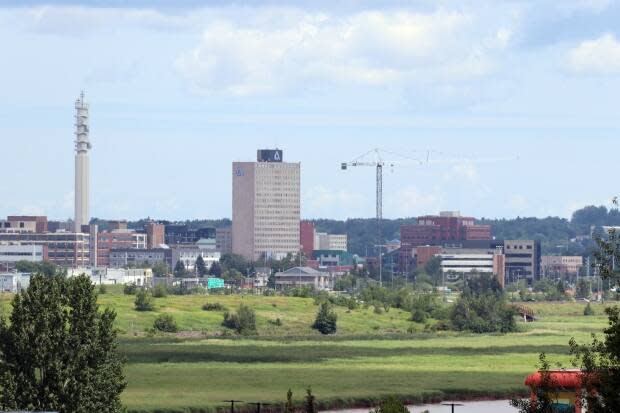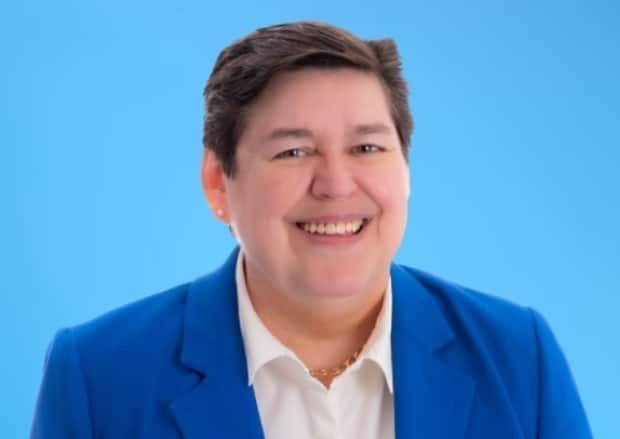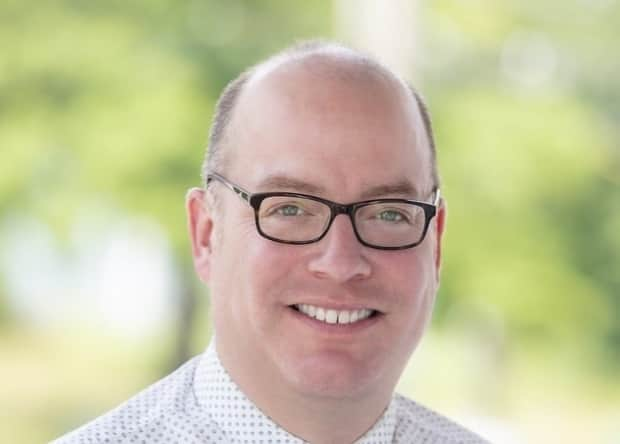Meet the Moncton-Riverview-Dieppe candidates and their plan for solving key issues

The riding of Moncton – Riverview – Dieppe encompasses one of Canada's fastest-growing regions and is one to watch as as voters head to the polls on Monday.
Incumbent Ginette Petitpas Taylor won the seat as part of the Liberal Party's sweep of New Brunswick in 2015. She defeated Conservative incumbent Robert Goguen by a relatively large margin.
Petitpas Taylor held the riding in 2019, even as the Liberals lost the ridings of Fredericton, Fundy Royal, New Brunswick Southwest and Tobique Mactaquac.
Speaking on CBC's Information Morning Moncton, candidates running for the riding shared their plans to address the soaring cost of living, climate change, the federal government's relationship with First Nations communities.
Ginette Petitpas Taylor, Liberal Party of Canada
The incumbent was first elected to the House of Commons in 2015, serving for a time as the country's minister of health before going on to win her seat again in the 2019 election.
She said the rising cost of living is a concern she's heard from many constituents, and one she hopes to tackle by helping implement her party's plan for a child-care subsidy, as well as by making housing more affordable.

Petitpas Taylor referred to the Liberals' launch of a National Housing Strategy, which committed to spending $72 billion over 10 years to create a million affordable housing units. She hinted that more would be done if her party is re-elected.
"Moving forward in the next four years, we want to either build or to renovate 1.4 million new housing units across Canada and more than that as well."
On climate change, Petitpas Taylor referred to the carbon tax that the Liberals had previously implemented, and said the plan is to maintain it and move toward a "net-zero economy" by 2050.
She said her government would also ban single-use plastics by 2030, spend heavily on public transit, and help homeowners retrofit their homes to make them more energy efficient.
On building relationships with First Nations communities, Petitpas Taylor said the Liberals had ended boil water advisories in more than 100 communities, with plans to do the same in 50 others.
For New Brunswick First Nations, she said her plan is to bring local leaders to the table to make sure the voices of those communities are heard.
Darlene Smith, Conservative Party of Canada
The former owner of special care homes, Darlene Smith said she decided to run for the seat to be a voice in Ottawa for the residents of the riding after 20 years working "behind the scenes" in politics and election campaigning.
Smith said one of her top priorities is housing affordability. She said that if elected, her government would offer developers incentives to build more affordable housing.

"Everybody deserves to have a roof over their heads, and if you look around our city, hey, we got some great construction going," Smith said.
"But affordable housing is not $1,200, $1,500, $1,800, right?"
On the government's relationship with First Nations communities, Smith said her government would spend money on investigating residential schools, and investing in reconciliation efforts for affected communities.
For local First Nations communities in New Brunswick, Smith said her priority would be to meet with representatives to hear about their needs with respect to job skills and employment opportunities.
On climate change, Smith said it's an issue she recognizes as being real and in need of action. She said the Conservative plan is to work to meet the targets set by the Paris Accord, and to help create more energy efficient homes and incentivize electric car purchases.
Smith also said her government would introduce an alternative to the current carbon tax program.
Richard Dunn, Green Party of Canada
An economic development officer for the City of Moncton, Richard Dunn said he's running out to set an example for his children, and to tackle issues facing his community.
With experience working closely with businesses, Dunn said he's aware of their concerns, as well as those of employees and consumers.

On the rising cost of living, Dunn said there needs to be a "rebranding" of the country's social safety nets toward one centred around a guaranteed minimum income.
"Right now … we've got social development, we've got EI … disability and seniors guaranteed income supplements," Dunn said. "And what we need is a ground floor where people can have a starting place so that they can actually get out of the cycle of poverty and contribute to the labour market."
Dunn said "job number one" for his party would be ensuring that all First Nations communities in Canada have clean drinking water, adding that the Green Party's platform has a heavy emphasis on truth and reconciliation.
"[First Nations] need to be partners in our communities. It's not an us and them mentality. We need to include them in, in all of our efforts and programs.
"And acknowledging that... is a first step but it's not enough," he said, adding that First Nations communities need to be better incorporated in cultural events, festivals and the naming of public parks and monuments.
On climate change, Dunn said the Moncton region has a good entrepreneurial spirit that could help with the transition toward green energy.
"We can really ramp up on green innovations by, you know, by helping small and medium-sized businesses retrofit their buildings.
"We can't continue to dodge this, this bullet for getting off of fossil fuels, and we need to electrify our vehicles, our public transit, and we need to actually move our electrical grid to more renewables as well."
Serge Landry, New Democratic Party of Canada
A regional representative for the Canadian Labour Congress with experience forwarding social justice causes in the region, Serge Landry said running for government was "the next natural step" in his civic involvement.
On the cost of living, Landry said creating more affordable housing and launching a national pharmacare program are top priorities for him and his party.

"Some people on their doorstep are saying they have to pick between taking their medication or paying their rent," said Landry, recalling conversations he's had while canvassing the riding.
"And our system … we need pharmacare implemented in it because our Medicare was just one part of it. Pharmacare is the second part of it," he said, adding that it, and other promises would be funded by raising taxes on the "ultra-rich."
Landry said in order to improve relations with First Nations, his government would implement all the recommendations that came out of the Truth and Reconciliation Report, and open communication with the communities to learn what they need.
On climate change, Landry said his government would implement its version of a carbon tax that makes the polluter pay, as well as create "green" jobs to ensure that workers aren't left behind in the switch to renewable sources of energy.
Lorelie Carrier, People's Party of Canada
Lorelie Carrier said she was inspired to run for Parliament to protect Canadians' freedom of speech, religion and ability to "choose what kind of medical procedures that we have."
On the cost of living, Carrier said prices have continued to climb because of inflation, which needs to be reined in by reducing the federal deficit.

"Our party wants to reduce the [inflation] rate from two per cent down to zero, that's actually going to help all sectors of our economy," she said.
Carrier said her party would do that by ending federal funding for social housing, which she said unfairly competes with private developers.
She said the party would also work with provinces to curb soaring housing prices by cracking down on foreign non-resident home buyers.
On relations with First Nations, Carrier said her party would abolish the Indian Act as it is "no longer viable."
"We want to see our Indigenous people treated with more respect and be more on an equal playing field, so we would actually abolish the Indian Act and come up with new legislation that is fair for everyone."
Carrier said she believes climate change is real and needs to be addressed, but that her government, if elected, would withdraw from the Paris Accord "and abandon unrealistic greenhouse gas emission reduction targets."
"So in order to do that, the first thing we would do is abolish the carbon tax and allow the provinces to adopt programs however they choose.
"We would also abolish subsidies for green technology and let the private developers create an efficient alternative."

